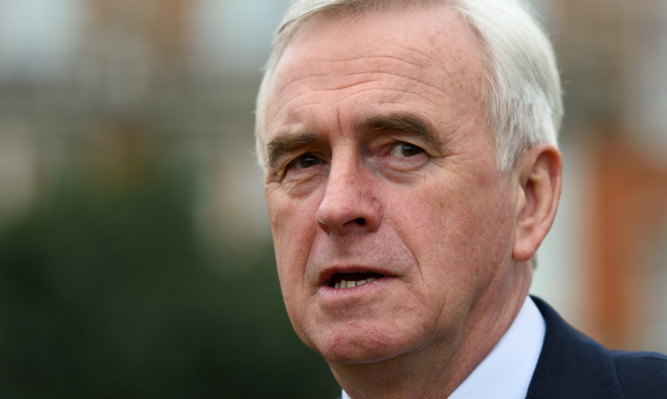A future Labour government would have both trade unions and businesses at the “top table” at Westminster, the shadow chancellor has said.
John McDonnell said while the move might sound like a return to the politics of the 1960s and 1970s, involving both industry and the unions could be to the benefit of all.
The shadow chancellor made the comments as he addressed the Federation of Small Businesses’ (FSB) conference in Glasgow, promising the FSB would be included in such a set-up.
Mr McDonnell said the move was needed as “I have argued time and time again that there has been a breakdown in communication at times from the shop floor, the factory floor, up to government”.
Labour governments in the 1960s and 1970s, led by Harold Wilson and James Callaghan, are categorised as a time of “beer and sandwiches at number 10” because of the access given to union leaders.
The left-wing MP told an audience of business leaders a future Labour administration would listen to businesses as well as unions.
He said: “We want to look at new institutions which bring businesses to the top table of political decision making again. So, I want small businesses at the top table in government for policy-making.
“This sounds like going back to the 60s or 70s but the government have done that in the past, they have established mechanisms, structures, where businesses and trade unions come together and co-operate and work together in determining advice to government on the development of the economy and the development of working practices and, yes, the development of legislation that benefits them all.
“I want to re-establish that sort of mechanism at the national level, so that when we go back into government sitting round the table will be representatives of businesses, and the FSB will be there and representatives of trade unions as well.”
Mr McDonnell also told the audience he agreed with the FSB that a proportion of government contracts should be handed to small businesses.
“There should be a proportion of contracts awarded by government to small business,” he said.
“When I was the chair of finance on the Greater London Council many years ago, the equivalent of the chancellor of the exchequer for London, we included in our contracts local employment clauses so that local firms would be used and local workers would be used as well.
“It worked in stimulating local businesses and growth and also local employment.”
